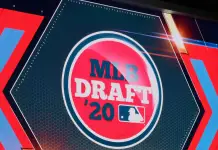I can’t figure out what Duquette (or anyone else n the organization ) is planning because we don’t know what directions and constraints come from the owner or how some important decisions about what the plan can be or how it can be implemented have been or will be made.
Did Duquette want the team to give Davis the contract he got? I don’t think so, but I don’t know. Did Duquette want the team to sign Trumbo and O’Day to long-term deals? I don’t know. Did he want to trade Britton at the deadline last year? I’m pretty sure he did. Did he want to trade Britton before then? I think so, but I don’t know. Did he want to trade Brach or O’Day? I’m guessing that he did, but I don’t know. Did he want to trade Manny when it became clear that the Orioles wouldn’t even try to extend him? I think so, but I don’t know, and if so I don’t know when he first wanted to try to make a trade. Would Duquette like to see the Orioles extend Schoop? Probably. Would he like to see the Orioles try to sign top free agent starting pitchers to the long-term contracts they would demand? I really don’t know. Is he willing to trade any of the Orioles’ top 10 prospects? While he has been in the past, it appears that he longer is, but I don’t know. I guess it depends. Would he like to see the team, scout, draft and develop international talent? I’m certain he would.
Let’s say every team is, at the end of a season, at a Point A. It wants to get to Point B, contending for the division title. (Very few if any teams, even division winners, think they can remain in tact, at Point B, and win it again.) Most teams come up with a plan for improving to get to Point B, , maybe in a year or maybe in three or four. The plan might be very specific or pretty general. The team then executes on that plan by some combination of allowing young players to mature and improve, by retaining some players and shedding others, and by acquiring new players by the drafts and by signing free agents, waived and released players. Even where a team puts a plan in place and follows it, the trip from Point A to Point B isn’t going to be a straight line. Injuries, surprises in players’ performances, trade opportunities and the like lead to divergences from the path. Sometimes the team can stick to its plan,, sometimes the plan has to be altered slightly, and sometimes it has to be scrapped entirely, either because circumstances change or it’;s just not working.
So far as I can tell, the Orioles have not been doing that — formulating and executing a plan — for at least the last couple of years. They finished 2017 looking like a sub-.500 team, with some serious weaknesses (starting pitching, an aging centerfielder, poor production at 1B and DH, low OPB), with other problems (the possible loss of Schoop and Jones) looming ahead in the next couple of years. They don’t have the resources to shore up those weaknesses by throwing money at free agents (or acquiring good players from teams seeking to shed those players’ very high salaries).
For a lot of teams, the next step would be to try to figure out how to reshape the roster to create a contending team, maybe in a year or two or, if that’s not feasible, over a longer period. Understandably, the team and Duquette specifically are harshly criticized for not doing that. Again, I have no way of knowing what’s happening, but it’s pretty clear to me that Duquette doesn’t have the option of formulating and executing on a two- or three- or four-year plan to put the Orioles in contention. Every year, he is told by the owner to come up with a team that can compete for a post-season position in that year. (I believe that’s what happens when the guy who’s calling the shots is approaching 90, has not gotten to the World’s Series in his 24 dismal years at the helm, doesn’t trust the judgment of anyone in the organization, and knows very little about baseball.) And Duquette has to tell the world that’s the Orioles’, and therefore his, objective. Even when that’s debatable, or just stupid, to think that it’s achievable or in the overall interest of the franchise.
Maybe Duquette had a plan two years ago that involved, among other things, trading Manny and Adam for some starting pitching after 2016, letting Davis walk and using that money to sign another starter and a centerfielder, and trading Jones for a shortstop or third baseman. He did seem to want to do some of those things. But I have no way of knowing whether he had a plan, let alone what it was because, if he did have a plan, he hasn’t been able to execute it. Rather, he’s been told, in effect, that the team would be losing Machado after 2018 but he couldn’t even try to trade him until after the 2017 season, that the deals he negotiated for Machado and Britton (and maybe others) weren’t good enough to trade them, that he couldn’t try to trade Jones, that he’ll be stuck with both Davis and Trumbo (and their salaries) for a few years, that he shouldn’t bother pursuing free-agent pitchers who are demanding long-term contracts, and that Schoop might or might not be around after this year.
Does Duquette have a plan now for improving the Orioles? Maybe, maybe not. He obviously has seen and still sees the team’s serious pitching problems — partly his fault from some real bad acquisitions — and that the promising young arms in the system aren’t ready to help. Having been unable to execute any plan that he may have had in the past couple of years, maybe he’s concluded that it’s pointless trying to formulate a plan for the team’s future, and that the best course is to put together a pitching staff in the only way he can without trading top prospects: continuing to try to trade Manny and signing other team’s discards to one-year contracts. Or maybe he’ll trade some top prospects after all. ML’ready starters. I hope not.
It’s fair to fault Duquette for the bad trades and acquisitions he’s made. But without knowing more than I do now, I can’t blame him for not following a plan to retool or rebuild a mediocre team when he’s told to try to take a declining core and create a contending team this year, and when options that could be key components of a reasonable plan are — at least by my best guess — not available to him.










![DPMnGFMWAAAwPtD[1]](https://orioleshangout.com/wp-content/uploads/2017/12/DPMnGFMWAAAwPtD1-696x928.jpg)














